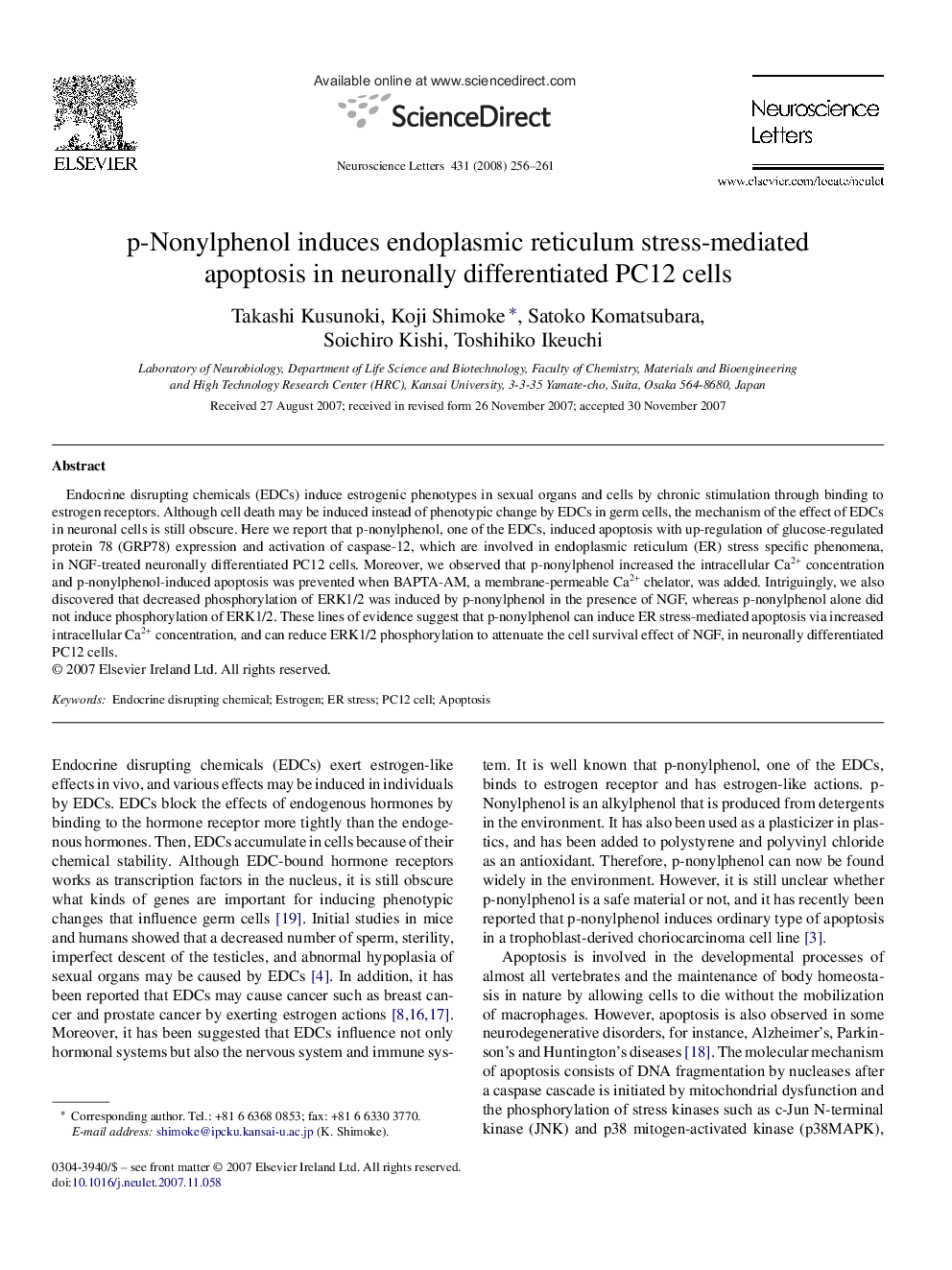| Article ID | Journal | Published Year | Pages | File Type |
|---|---|---|---|---|
| 6285886 | Neuroscience Letters | 2008 | 6 Pages |
Abstract
Endocrine disrupting chemicals (EDCs) induce estrogenic phenotypes in sexual organs and cells by chronic stimulation through binding to estrogen receptors. Although cell death may be induced instead of phenotypic change by EDCs in germ cells, the mechanism of the effect of EDCs in neuronal cells is still obscure. Here we report that p-nonylphenol, one of the EDCs, induced apoptosis with up-regulation of glucose-regulated protein 78 (GRP78) expression and activation of caspase-12, which are involved in endoplasmic reticulum (ER) stress specific phenomena, in NGF-treated neuronally differentiated PC12 cells. Moreover, we observed that p-nonylphenol increased the intracellular Ca2+ concentration and p-nonylphenol-induced apoptosis was prevented when BAPTA-AM, a membrane-permeable Ca2+ chelator, was added. Intriguingly, we also discovered that decreased phosphorylation of ERK1/2 was induced by p-nonylphenol in the presence of NGF, whereas p-nonylphenol alone did not induce phosphorylation of ERK1/2. These lines of evidence suggest that p-nonylphenol can induce ER stress-mediated apoptosis via increased intracellular Ca2+ concentration, and can reduce ERK1/2 phosphorylation to attenuate the cell survival effect of NGF, in neuronally differentiated PC12 cells.
Related Topics
Life Sciences
Neuroscience
Neuroscience (General)
Authors
Takashi Kusunoki, Koji Shimoke, Satoko Komatsubara, Soichiro Kishi, Toshihiko Ikeuchi,
